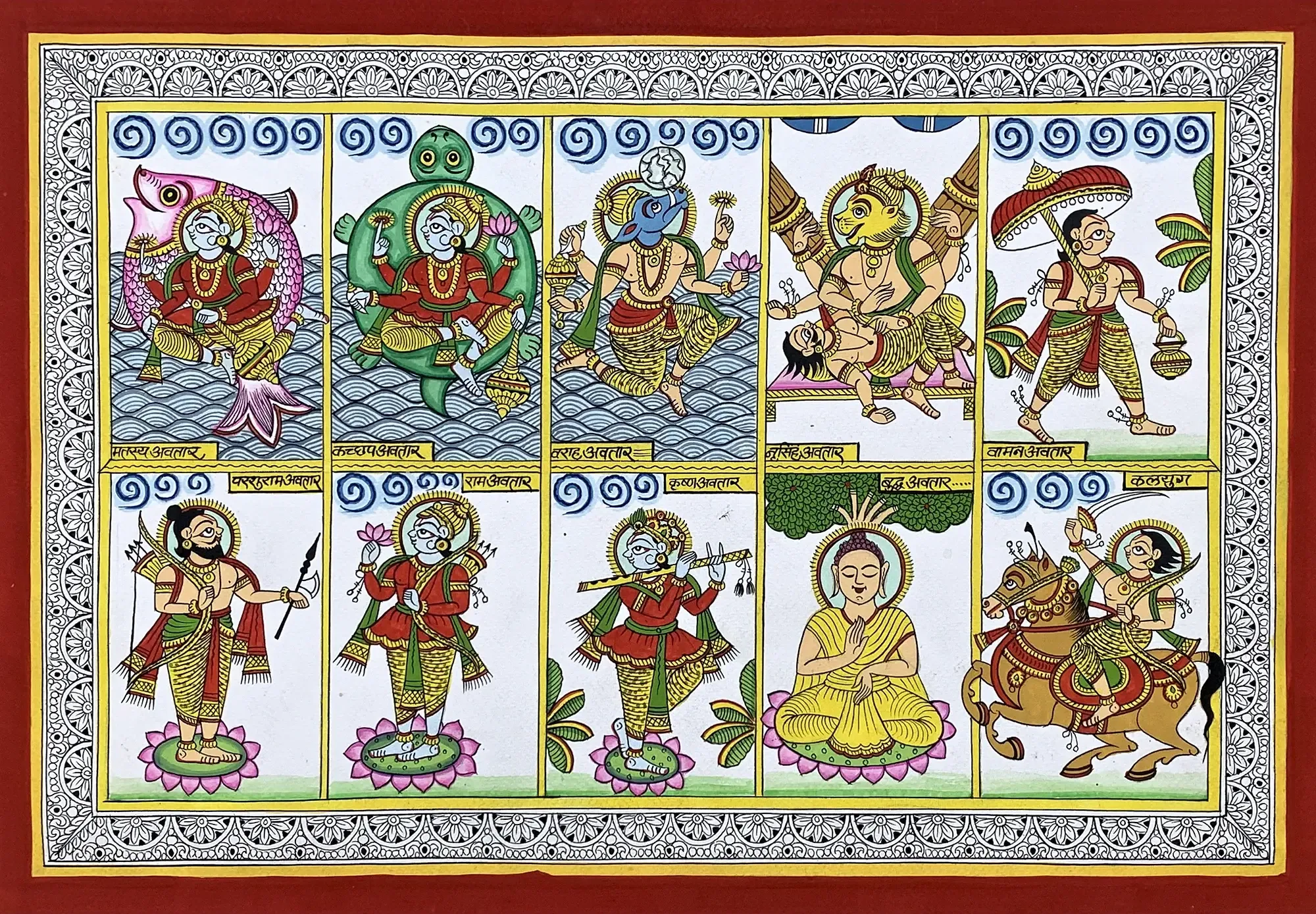How Religion And Science Both Predict The End Of The World

Here's a bit of gallows humor. ‘A polytheist is standing next to a monotheist at the gallows, nooses around their necks, ready to fall. “First time?” the Hindu says nonchalantly, as the monotheist boggles.’
In Hindu thought, the world being destroyed and recreated is literally nothing new. This has happened many times already. Vishnu has already reincarnated nine times to right things, usually violently (as a fish, turtle, boar, half-lion, dwarf human, man with axe, Krishna, Rama, and possibly Buddha). Next time is a man on a white horse (Kalki), which must sound familiar. These cycles of reincarnation broadly match the theory of human evolution (fish, amphibian, mammal, jungle rat, Australopithecus, Homo Habilis, etc), punctuated by mass extinctions to balance things out (always violently). This is not coincidental, just two ways of observing the same phenomenon.
Meanwhile the one god of the desert—which has spewed out so much Satanic energy as oil and gas—promised a total apocalypse long ago. Judaism, Christianity, and Islam are all apocalyptic faiths, they're all centered around the world ending, and Judgement Day coming, biblically speaking, soon. Zionists strive (Satanically) to make it come faster and Zionists already inflict apocalyptic conditions on the people of Gaza, who least deserve it. God said this would be a time of great evil, and these godless people strive to bring it.
In the end it doesn't matter which path you take to the end. We all get there, in the end. Whether the world has ended over and over again or if it happens once is immaterial when you're in the middle of it. Even the most confident materialist can observe the mass extinction event we're living through with however many confidence intervals the false god of statistics recommends. Even the most analytical atheist would admit that the climate reeks to high heaven. These are all observable facts, even if you're not observant.
All major religions believe in an end of this world just as almost all report a flood because it's true. Sea levels did rise dramatically 20,000 to 10,000 years ago, not coincidentally the dawn of civilization as we know it. Sea levels are rising dramatically again, as fast as Meltwater Pulse 1A, leading to the dusk of civilization as we know it too. Both religion and science tell the same story, that we began out of great climatic shifts and end there too.
The modern view of religion is that it describes the individual afterlife, but the individual is a modern conception. In Abrahamic faiths there is no concept of an individual afterlife, everyone waits until Judgement day when all accounts are settled, everyone who's ever lived or died comes back and are judged all at once. In Hinduism or Buddhism there is no individual to even start from, we are constantly being reincarnated in myriad forms, which collectively amount to nothing worth clinging onto, as per Buddhism. Thus the afterlife really refers to after life, after this life as a collective, not your life right now.
The modern view of religion as separate from philosophy or science is also wrong too. Hindu numbers (including zero) came out of the need to perfect religious rituals, Pythagoras was a bit of a cult leader, and science developed through mosque and monastery, through deeply religious people who saw no contradiction as we do. The distinction between religion and science only exists if you start history at the Age of Enlightenment and ignore the Buddha's actual Enlightenment and everything preceding. Which is ignoring 99% of human history, 99.9975% of living history, and infinity and beyond.
Science and religion both predict the end of the world, and we are unlucky enough to see the experiment play out in our lifetimes now. If it's your first time you might be scared, even if you believe in cycles you're unprepared, but even if you believe in nothing you can't deny that something big is going on. However you approach this truth is largely immaterial. The truth approaches us on its own terms. Death comes to us all. Individually, then collectively, then disjointedly we are reborn.